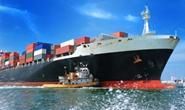Government/Policy

July 23, 2017
SMA Favors Section 232 Tariff
Written by Tim Triplett
The American steel industry is facing a crisis that endangers U.S. national security, and it’s time for decisive action, says Philip Bell, president of the Steel Manufacturers Association in Washington, which represents the interests of EAF steel producers in the U.S. In the pending Section 232 investigation, SMA is advocating strongly for a new steel tariff, rather than a quota system or some other mechanism, to discourage unfairly low-priced imports.
“A tariff is the simplest, the most easily administered and the most immediately effective action possible. It should cover all products (including semifinished slabs) from all countries, with very limited exceptions,” Bell says.
 Many in the steel industry favor a quota system of some sort, which would allow the U.S. to treat friendly trading partners such as Canada and Mexico more favorably than trade adversaries such as China. But SMA sees shortcomings in that approach.
Many in the steel industry favor a quota system of some sort, which would allow the U.S. to treat friendly trading partners such as Canada and Mexico more favorably than trade adversaries such as China. But SMA sees shortcomings in that approach.
“A quota system is extremely complex. It will take months to design and implement. If not done right, it could distort the market and be a disaster,” Bell says. “We need relief now, not six or nine months from now.”
Bell offers the same response to those who believe the existing antidumping and countervailing duty rules offer sufficient remedies to domestic steelmakers. When mills file trade cases, it typically takes 18-24 months and millions of dollars to see the case through, with no guarantee of the outcome. In the meantime, they can lose market share, pricing power and jobs, he notes.
The timing of the G20 summit, the China talks and NAFTA negotiations have complicated matters on the trade front and are “all interwoven” with the Section 232 debate, Bell says. “A tariff is simple, clear and easy for the public to understand. We can’t just rely on the diplomatic approach with global forums and joint dialog. We need something with teeth in it.”
The steel industry is clearly vital to national defense, SMA contends, and extends far beyond the direct role of steel in military applications. National security involves critical infrastructure, transportation, the electrical grid, energy and water distribution systems.
The real long-term problem is global steel overcapacity, SMA wrote in a recent op-ed piece. “The flood of steel imports into the United States is the direct result of the deliberate actions of the governments in China and elsewhere to expand and support their domestic steel industries. The United States has repeatedly attempted to convince other countries to negotiate a solution, but they have refused. Now the United States faces a stark choice. It can either act on its own to preserve a viable steel industry, or it can become dependent upon other countries for this essential material.”
The need for action is pressing, SMA maintains. “Steel imports in the first half of 2017 were more than 20 percent higher than in 2016. Only urgent action by President Trump will enable the domestic steel industry to return to sustainable levels of production and only this will convince countries like China they must take concrete steps to reduce their overcapacity.”
The delay in the expected release of the Section 232 report from the Commerce Department is cause for concern, Bell says. “I hope they are just taking their time to get it right.” But he and SMA members are advocating for bold trade action sooner rather than later. “Everyone acts like this [232] is the end of the world and it’s going to start a trade war. In my estimation, the trade war has already started. We’ve been fighting it for many years, we’ve taken a lot of casualties, and we are losing.”
Philip Bell will be an advocate for the steel mills’ position on trade at this year’s SMU Steel Summit Conference in Atlanta on August 28-30, 2017.







